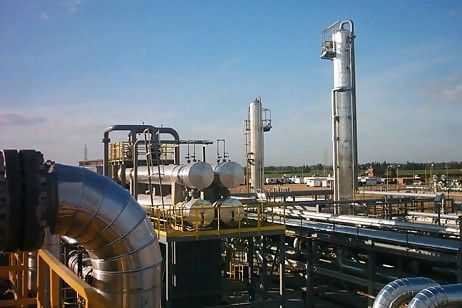
April Yee
Nov 15, 2011
ERBIL, Iraq // Before Iraqi Kurdistan built its new airport, visitors often had to travel circuitous routes to get to the northern region, usually by way of Turkey.
Turkey has taken advantage of its proximity to build close business ties with this semi-autonomous region of Iraq, in spite of a tumultuous history that continues to pit Kurdish rebel fighters against the Turkish military.
“We are neighbours by blood,” said Mehmet Sepil, the chief executive of Genel Enerji, a Turkish company that drills in Kurdistan. “I’m sure in the future and in the very soon future there will be very good coordination between the Kurds [and the] Turkish government.”
Kurds, who are the majority in Kurdistan, are an ethnic minority in Turkey. Enmity between some Kurds and Turkish authorities dates as far back as Turkey’s efforts to “Turkify” Kurds in the 1930s, and for the past quarter of a century Kurdish rebels in Turkey have pushed for more political and civil rights, at times violently.
In the latest outbreak of violence, Turkey carried out an airstrike on Sunday in the Qandil Mountains near the border between Turkey and Iraq.
The attack targeted Kurdish rebels of the PKK – the Kurdistan Workers’ Party – an organisation that is based in Kurdistan and positions itself as a foe of the Turkish government.
But when it comes to business, Iraqi Kurdistan has turned a blind eye to Turkey’s military incursions, and Turkey to the rebels based in Kurdistan. The working relationship is about one thing, energy.
“Turkey has a big need for energy,” Mr Sepil said.
“Today, Turkey produces only about 8 to 10 per cent of the crude it needs and only 1 or 2 per cent of the gas. Every year power demand grows by 2,500 megawatts … We are paying a huge bill to Russia, Azerbaijan, Iran to cover these costs.”
Turkey hopes to ship Kurdish gas through the planned Nabucco pipeline to Europe, and Kurdistan has talked of an alternative plan to send the gas to a plant at the Turkish port of Ceyhan, where it would be liquefied for export by sea to international markets.
Genel Enerji brought US$2.1 billion (Dh7.71bn) of investment to Kurdistan in September when it struck a deal to merge with Vallares, the investment company headed by Tony Hayward, who stepped down as chief executive of BP last year.
Despite the recent airstrikes, Ashti Hawrami, the oil minister of Kurdistan, characterised the state of play with Turkey as “a good relationship”.
via Turkey and Iraqi Kurdistan look past hostilities to cooperate – The National.

Leave a Reply